OpenAI "Deep Research" in ChatGPT: A Game-Changer for Complex Problem Solving?
OpenAI's Deep Research is a game-changing tool that could revolutionize how we conduct research and solve complex problems.
This powerful new feature in ChatGPT allows the AI to independently search the internet, analyze information from various sources, and provide comprehensive answers to challenging questions.
But what exactly is Deep Research capable of, and how does it work?
In this article, we'll explore the key features, use cases, and limitations of it.
We'll also discuss how Deep Research fits into the bigger picture of AI development and what it means for the future of knowledge and problem-solving.
Let's get into it!
What is OpenAI's Deep Research?
OpenAI has introduced a powerful new "agentic capability" in ChatGPT called Deep Research.
This feature allows ChatGPT to conduct multi-step research on the internet to solve complex tasks.
Key points about Deep Research:
It can find, analyze, and combine information from hundreds of online sources
Accomplishes in minutes what would take a human many hours of research
As OpenAI states, Deep Research is "a new agent that can do work for you independently"
Deep Research leverages reasoning to search, interpret, and analyze large amounts of text, images, and PDFs on the internet. It can react to the information it encounters and adjust its approach as needed.
According to OpenAI, "Deep research is built for people who do intensive knowledge work in areas like finance, science, policy, and engineering and need thorough, precise, and reliable research." It aims to save valuable time by allowing users to offload complex, time-intensive web research with a single query.
Limitations of Deep Research
While Deep Research is a powerful feature addition to ChatGPT, it comes with several important limitations that users should know about:
Current Limitations:
Can sometimes provide incorrect facts in its responses
May struggle to tell the difference between reliable and unreliable information
Often fails to express uncertainty when it should
May have formatting errors in reports and citations
Tasks can take longer to start compared to regular ChatGPT
Access Restrictions:
Only available to ChatGPT Pro users
Limited to 100 queries per month
Not yet available in the United Kingdom, Switzerland, and European Economic Area
Currently only works on ChatGPT's website, not on mobile apps
Computing Requirements:
Uses significant computing power
Longer research tasks need more processing power
May work slower than regular ChatGPT due to its complex operations
OpenAI is working on improving these limitations and plans to release a faster version that will be more cost-effective while maintaining quality results.
How Does Deep Research Work?
Deep Research works by breaking down complex research tasks into smaller, manageable steps, similar to how a human researcher would approach a problem. It is created by end-to-end reinforcement learning, it learns from doing hard browsing and reasoning tasks across various fields.
Core Working Process:
Takes your research question and plans out the necessary steps
Searches through multiple online sources for relevant information
Connects different pieces of information together
Creates organized reports based on its findings
The tool uses special features to make research more effective:
Can read various file types including PDFs and spreadsheets
Adapts its search strategy based on what it finds
Creates detailed reports with proper citations
What makes Deep Research unique is that it works independently once given a task, thinking through problems step by step and changing its strategy when needed. Unlike regular ChatGPT, Deep Research can spend more time exploring multiple sources and piecing together comprehensive answers.
The system works continuously until it gathers enough information to provide a complete answer to your research question. This makes it especially useful for complex topics that require deep understanding and analysis, helping users get thorough research results more efficiently.
Deep Research in Action: Use Cases and Examples

Deep Research has proven valuable across various fields, offering practical solutions for different types of research tasks.
Here's how different professionals can benefit from this technology:
Business and Finance Applications:
Market Research: Analyzes market trends, competitor data, and industry reports
Investment Research: Gathers and analyzes financial data from multiple sources
Competitive Analysis: Creates detailed reports about market competitors and industry trends
Scientific and Academic Uses:
Literature Reviews: Compiles and summarizes research papers and academic publications
Data Analysis: Processes complex datasets and creates comprehensive reports
Research Support: Helps researchers gather background information for new studies
Professional Applications:
Policy Research: Studies regulations and policy impacts across different sectors
Engineering Solutions: Investigates technical specifications and industry standards
Healthcare Information: Gathers medical research and treatment information
Practical Benefits:
Saves significant time on research tasks
Provides well-organized, detailed reports
Ensures thorough coverage of topics
Includes proper citations and sources
Adapts research strategies based on findings
For example, while a financial analyst might spend days gathering market data, Deep Research can compile this information in minutes, creating a comprehensive report with current market trends, competitor analysis, and relevant statistics.
Similarly, a researcher can use it to quickly gather background information about a specific topic, saving hours of manual searching and compilation work.
How to Use Deep Research
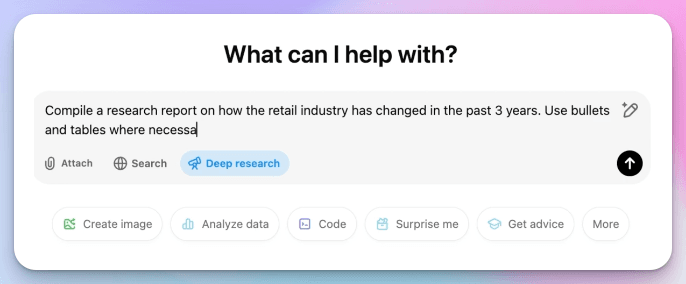
Deep Research is currently only available to ChatGPT Pro users, with a limit of 100 queries per month.
To use it, Pro users can select 'deep research' in the message composer and type their question or research topic. You can also upload files like spreadsheets or documents to provide additional context.
When Deep Research starts working, you'll see a sidebar showing its progress and sources. The process typically takes 5 to 30 minutes to complete, depending on the task's complexity.
You can work on other tasks while waiting, and you'll receive a notification when your research report is ready. The final report appears in your chat with organized findings and citations.
Note: The feature is not yet available in the UK, Switzerland, and European Economic Area.
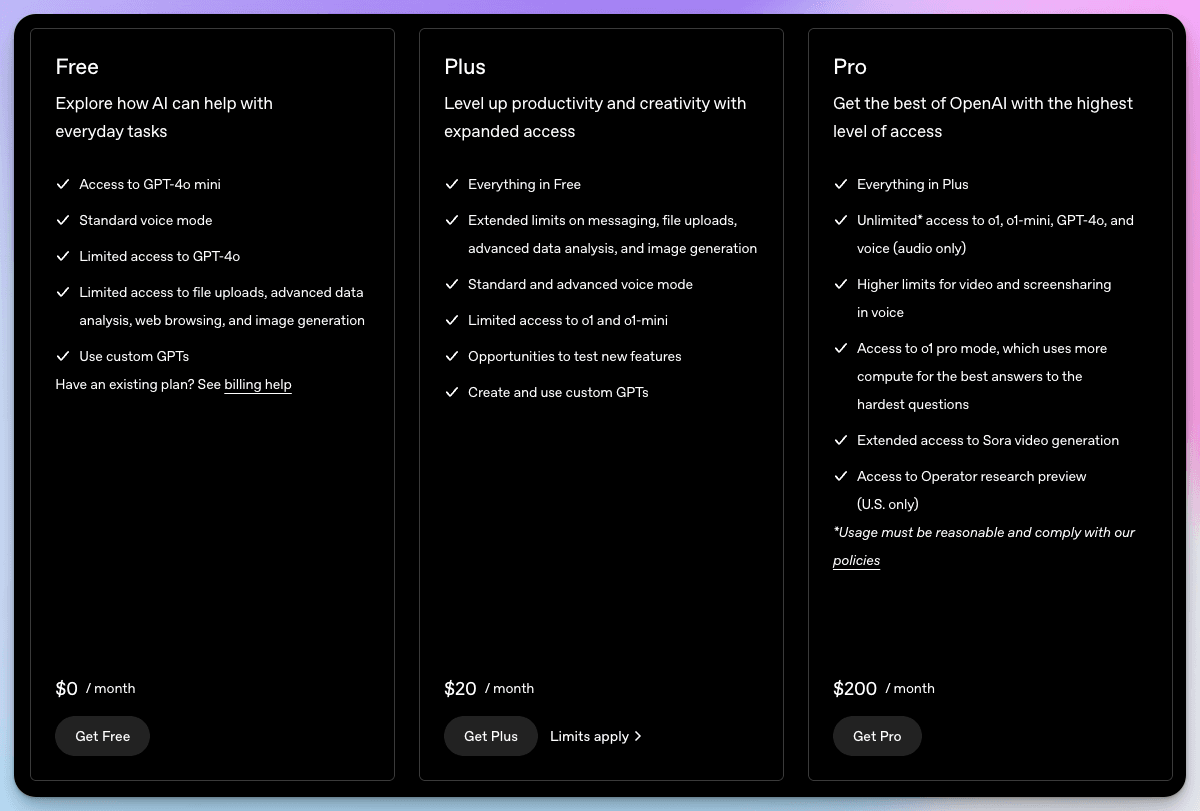
Performance Benchmarks: Humanity's Last Exam and GAIA
OpenAI's Deep Research has shown impressive results in two major benchmarks: Humanity's Last Exam and GAIA evaluations.
Humanity's Last Exam Results:
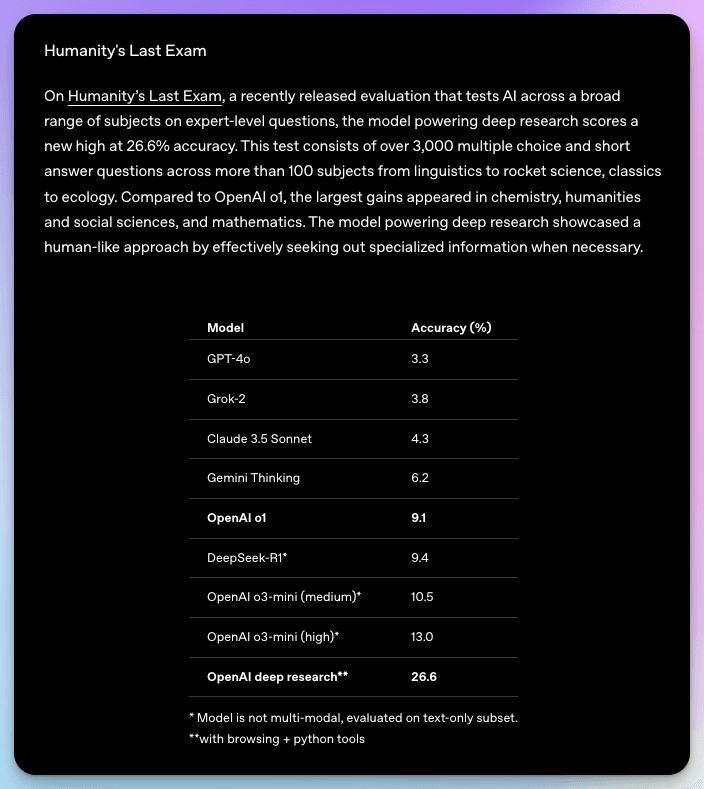
Scored 26.6% accuracy, setting a new record
Significantly outperformed other AI models, including GPT-4o (3.3%)
Showed major improvements in chemistry, humanities, and mathematics
Surpassed leading models like OpenAI o1 (9.1%) and Gemini Thinking (6.2%)
GAIA Benchmark Performance:
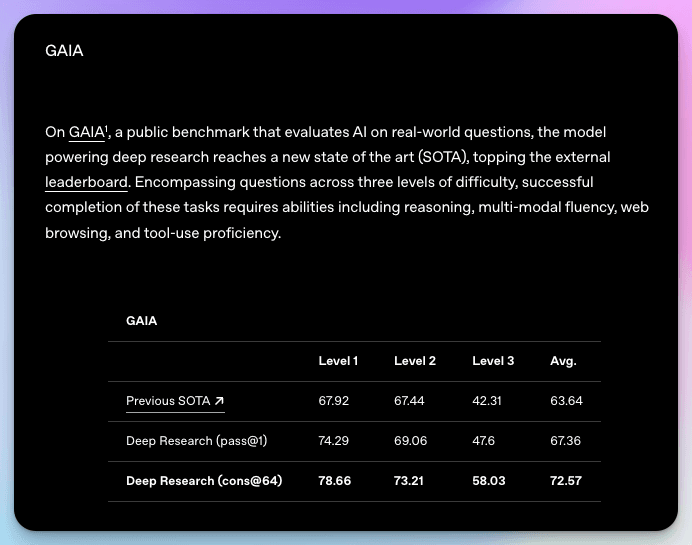
Scored 67.36% on basic pass rate
Reached 72.57% with enhanced consistency testing
Performed well across three difficulty levels:
Level 1: 74.29%
Level 2: 69.06%
Level 3: 47.6%
Tool Usage and Performance:
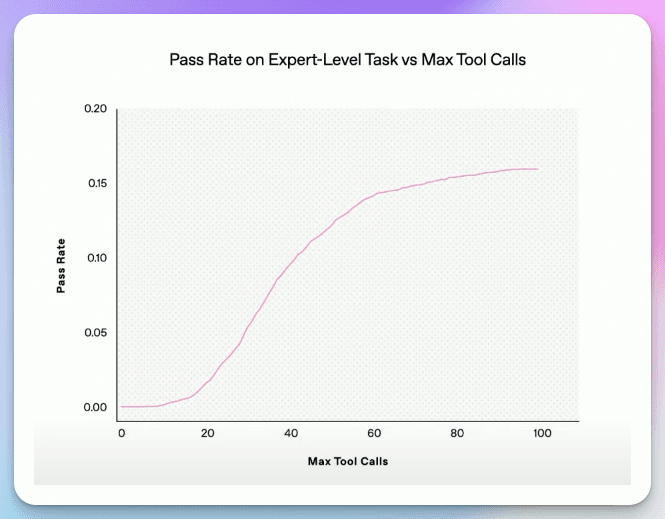
An interesting insight comes from the relationship between tool calls and performance. As shown in the analysis, Deep Research's pass rate increases significantly with more tool calls, reaching optimal performance around 60-80 calls. This indicates that the system becomes more effective when given time to thoroughly research and analyze problems.
Economic Value vs. Time Investment:
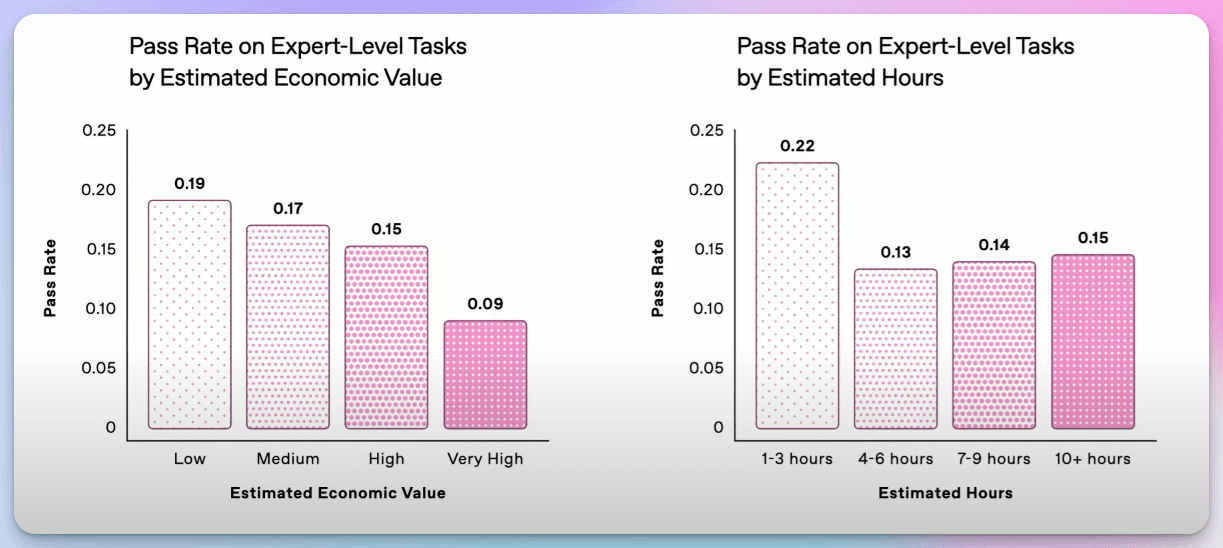
The data reveals two interesting patterns:
Tasks with lower economic value actually show higher pass rates (19% for low value vs 9% for very high value)
Shorter tasks (1-3 hours) have higher pass rates (22%) compared to longer tasks (15% for 10+ hours)
This suggests that Deep Research is particularly effective at handling quick, focused research tasks, though it maintains reasonable performance even on more complex, time-consuming problems.
What makes these achievements significant is Deep Research's ability to use web browsing and Python tools to solve complex problems. This allows it to search for specific information and process data in ways that other AI models cannot, making it more effective at handling real-world questions that require detailed research and analysis.
The Bigger Picture: AGI and the Future of Knowledge

Deep Research represents an important step toward Artificial General Intelligence (AGI), particularly in how AI systems understand and create knowledge. OpenAI sees this capability as crucial for developing AI that can produce original scientific research in the future.
The ability to analyze and combine information from various sources is a key stepping stone toward more advanced AI systems. Deep Research shows how AI can now handle complex research tasks that previously required human expertise.
Looking ahead, this technology could transform how we:
Conduct scientific research
Analyze complex information
Make discoveries across different fields
Solve challenging problems
However, it's important to understand that while Deep Research is a significant advancement, it's still far from true AGI. It's a tool that helps humans work more efficiently rather than a replacement for human researchers. The technology shows us both the progress we've made and how much further we need to go in developing truly intelligent AI systems.
Conclusion
OpenAI's Deep Research feature is a game-changing addition to ChatGPT that allows users to conduct complex, multi-step research tasks more efficiently.
With Deep Research users can find, analyze, and synthesize information from hundreds of online sources in a matter of minutes. While it has limitations, such as occasional inaccuracies and compute-intensive requirements, it has already shown impressive results on benchmarks like Humanity's Last Exam and GAIA.
As technology continues to develop, it could transform how we approach research and knowledge creation across various fields. Deep Research is one significant step to bring us closer to the goal of Artificial General Intelligence.
Subscribe to our weekly AI newsletter to receive concise summaries of the latest AI news and developments. You can also listen to our AI News Deep Dive with Elephas podcast on Apple Podcasts and Spotify.
FAQs
1. How does Deep Research differ from regular ChatGPT?
Deep Research conducts multi-step internet research to solve complex tasks, while regular ChatGPT relies on its existing knowledge base. Deep Research can find, analyze, and synthesize information from numerous online sources, adapting to the information it encounters.
2. Is Deep Research worth the Pro subscription?
For users who require thorough, precise, and reliable research for intensive knowledge work, Deep Research can save significant time and effort, making the Pro subscription valuable. However, its worth depends on individual research needs and frequency of use.
3. How accurate are the citations and sources?
Deep Research aims to provide accurate citations and sources, but minor formatting errors might occur initially. It may also have difficulty distinguishing authoritative information from rumours. As with any research tool, users should critically evaluate the sources and information provided.
4. What are the limitations of Deep Research?
Deep Research may occasionally produce inaccurate facts or incorrect inferences, struggle with distinguishing authoritative information from rumours, and have difficulty conveying uncertainty. It is compute-intensive, which may impact availability and speed for some users. Improvement is expected with increased usage over time.
Comments
Your comment has been submitted